Democrats’ Faustian Bargain
In their mad race for money, the front-running Democratic presidential candidates might be selling themselves to the devil. That is, in words more familiar to political debate, they might be delivering themselves into the hands of rich and powerful opponents of progressive policies.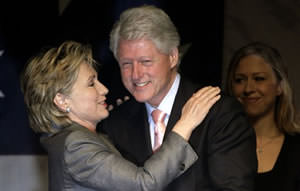
In their mad race for money, the front-running Democratic presidential candidates might be selling themselves to the devil. That is, in words more familiar to political debate, they might be delivering themselves into the hands of rich and powerful opponents of progressive policies.
That’s the natural consequence of soliciting the huge sums required by the campaign. We’ll see what happens if a Democratic president takes office and tries to make progress on universal health insurance, child care, greedy loan practices and all the other parts of a domestic agenda shelved during the Bush presidency and compromised in the Clinton years.
I thought of this after reading a story in The New York Times on Bill Clinton’s efforts on behalf of Hillary. It was an admiring account of Clinton’s role as “master strategist … consigliore and … a fund-raising machine who is steadily pulling in $100,000 or more at receptions.”
You don’t raise $100,000 at an event on charm alone, even with someone as charming as Bill Clinton making the pitch. More important than charm are the bundlers, the heart of a presidential campaign. As described in a Hoover Institution study of campaign finance, bundling is “the practice of pooling individual contributions from various people — often those employed by the same business or in the same profession — in order to maximize the political influence of the bundler. Typically, all of the checks collected in this way are sent or delivered to candidates on the same day.”
With federal law limiting individual contributions to $2,300, or $4,600 for a couple, the bundler has become perhaps the most valuable player in presidential politics. Sometimes, a bundler is just a well-connected, rich, star-struck fan. Other bundlers are friends. In politics friendship isn’t the same as in normal life. A friend is a political ally who can help you out. Life is too busy for other kinds of friendships.
The most common bundler: a power lawyer, lobbyist, Wall Street executive, real estate mogul or Hollywood boss. This individual will host a dinner or reception at his or her luxurious home or in a prime room in the most expensive and exclusive club or hotel in town. The candidate mingles, feigning great interest in the donors’ idiotic ideas. The candidate then gives a speech sucking up to the guests. Reporters, barred from the event, wait in a crowded pressroom or stand behind ropes, illustrating that the candidate and the campaign managers hold them in contempt.
A report of the Center For Responsive Politics, a nonpartisan organization that tracks campaign contributions, gives an indication of which Democratic candidates have the best bundlers. The report does this by breaking down the percentage of donations of $2,300 or more to each candidate. Such contributions are the usual ingredients of a donation bundle.
Not surprisingly, the findings correspond to the candidates’ current standing in the presidential nomination handicapping.
First is Sen. Clinton. A total of 74 percent of the $36 million she has collected came from those giving $2,300 or more. For Sen. Barack Obama, it was 49 percent of his $25.7 million. Forty-seven percent of John Edwards’ $14 million came from such big contributors.
That’s a lot of bundling. With it goes an unspoken agreement that candidate and staff will listen to the bundler’s business and professional problems when the time comes. When Republicans do this, nobody blinks twice; the Republican Party is in bed with corporate America. But the Democrats, as heirs to progressive politics, have an obligation to tackle the country’s social and economic problems.
Obviously, the biggest blight on our country today is the war, and the Democrats’ greatest challenge is to find a way to force President Bush to end it.
After that, though, is the domestic crisis of a poor and middle class deprived of affordable healthcare, good public education and reasonably priced housing. And that’s just a start.
The biggest of these is health insurance. All Americans need access to something like Medicare, which provides fairly good insurance for those over 65. Our present system of employer-based insurance no longer works. Even big business admits the high cost makes it difficult for American companies to compete with foreign firms. Companies are shedding workers, often partially replacing them with contract employees who receive no benefits. The ranks of the middle-class uninsured are growing, joining the large army of uninsured poor.
To fix this, a Democratic president and Congress will have to find their way through a tangle of special interests — drug and insurance companies, big and small employers, doctors and others opposed to universal medical insurance.
Unlike the war debate, these domestic battles will not be fought on a public stage. They’ll be done in the backrooms, deal by deal, one sneaky clause after another, far from the public view, too arcane for the mainstream media, too dull for most of the blogosphere.
In this atmosphere, the bundlers are transformed into policy-makers. Hopefully, a new Democratic president and a Democratic Congress will not sell out to them.
Your support matters…Independent journalism is under threat and overshadowed by heavily funded mainstream media.
You can help level the playing field. Become a member.
Your tax-deductible contribution keeps us digging beneath the headlines to give you thought-provoking, investigative reporting and analysis that unearths what's really happening- without compromise.
Give today to support our courageous, independent journalists.
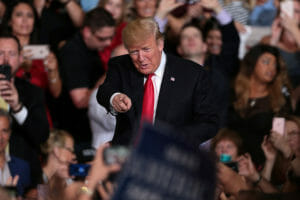
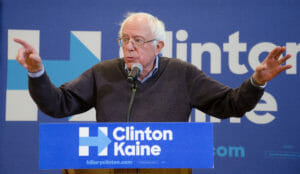
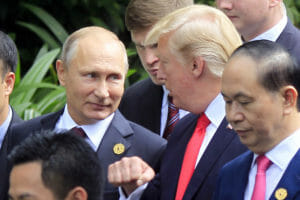
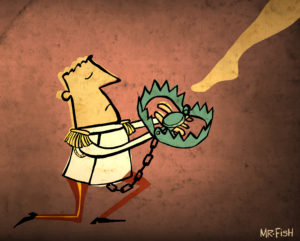
You need to be a supporter to comment.
There are currently no responses to this article.
Be the first to respond.